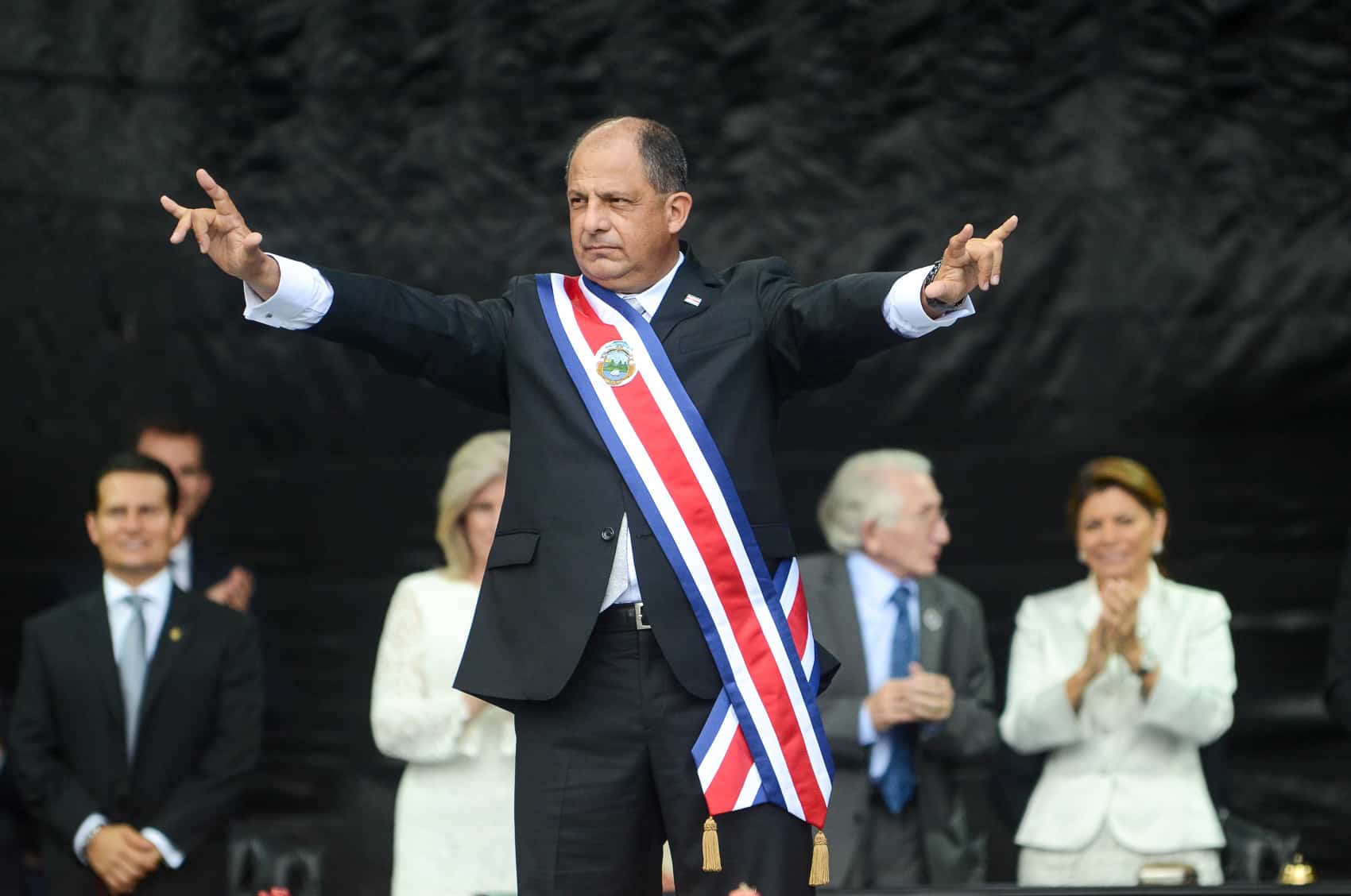Candidate Luis Guillermo Solís told The Tico Times in an interview during the presidential campaign that his administration would not be “business as usual.” One of the first things he said Costa Ricans could expect if he were elected was a 100-day report on the state of his governing.
This week, President Solís has requested an audience at the Legislative Assembly on Thursday to present that report, which presumably will guide his administration in the years to come.
The symbolic milestone has weighed heavy on the minds of many Ticos as the president strives to make good on ambitious campaign promises to root out corruption, fight inequality and reinvigorate the state’s productive capacity.
Solís already has faced several setbacks, including a month-long teachers’ strike that began before he took office on May 8. Two months later, Ombudswoman Ofelia Taitelbaum submitted her letter of resignation after lawmakers and Judicial Investigation Police announced they would open an investigation into allegations that she had committed tax fraud. Solís’ first days in office also have seen a continued increase in cost of living indexes and a currency mini-devaluation.
Despite these early stumbles, many Costa Ricans say the country is on the right track, and have rated the president’s performance well. Others are reserving judgment of the Citizen Action Party president, according to an Aug. 13 survey by the University of Costa Rica’s Center for Research and Policy Studies (CIEP) on how citizens view the first 100 days of Solís’ administration.
In November 2013, 64.4 percent of those surveyed by CIEP said that the country was going “badly” or “very badly.” In July, that number dropped more than 40 percent to 37.6 percent. Meanwhile, those who felt the country was going “well” or “very well” jumped from 14.3 percent to 33.1 percent during the same period. Nearly 40 percent of those surveyed said Solís was doing a “good” or “very good” job, a “significant” improvement over the rating of former President Laura Chinchilla (2010-2014), according to CIEP’s report.
More than 21 percent said that they couldn’t say either way how the president was doing, compared to a scant 2.7 percent who didn’t have an opinion about President Chinchilla last January, or 1.7 percent in November 2013, according to previous surveys from the university.
The fractured Legislative Assembly was rated as the least popular government entity and the biggest obstacle to the president’s agenda. Political analyst Constantino Urcuyo told The Tico Times that divisions between the president and his own party in the legislature are proving to be a serious hurdle for the non-career politician turned president.
“The main opposition is PAC, not the National Liberation [Party],” Urcuyo said, referring to the former ruling party of President Chinchilla, which has a majority in the Assembly.
“When PLN reorganizes itself, it’s going to come back as the opposition,” the analyst warned.
Urcuyo, who was a Social Christian Unity Party lawmaker, said the president’s course in office so far seemed to lack direction.
“It was a surprise victory. They were left holding the ball, and so the question is, where do I kick it?” he said.
The analyst said Solis’ team would have to move out of “campaign mode” and start to pin down their priorities and how they want to accomplish them.
“You can design a strategy with objectives that you want to achieve within a year, but you need to say how you’re going to do it, how you’re going to get to this world. This is what they’re missing,” Urcuyo said.
The president’s campaign priorities remain roughly in line with the top priorities cited by Costa Ricans who were surveyed, including the high cost of living, inequality and the state of the economy. Unemployment — currently at about 8.5 percent — and corruption rounded out the top three cited by Ticos.
Solís has made some moves to address high levels of perceived corruption in the previous administration. He ordered an investigation into the management of the Culture Ministry and asked the Prosecutor’s Office to review an ethics investigation of former Public Works and Transport Minister Pedro Castro to determine if any laws were broken during his term.
While many of those surveyed said they are uncertain about the successes or failures of the first 100 days, many more are optimistic about Solís’ ability to fulfill at least some of his campaign promises. More than 48 percent said they believed his government would likely achieve some of his campaign promises, and another 20.3 percent said there is a good chance it would. Some 23.9 percent said there was little chance for the erstwhile ex-professor to succeed.
“Give him some more time,” Urcuyo urged. “This guy brought [Costa Rica] joy like the Sele [the Costa Rican men’s national football team], but the happiness has passed, and the worst thing that could happen is that people become disenchanted.”
CIEP interviewed 748 people by telephone between July 15 and Aug. 4. The survey has a 95 percent confidence rate.






